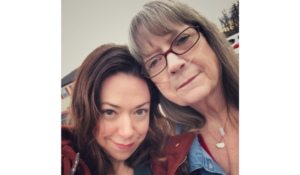By: Kathleen Benckendorf
ATN is delighted to welcome Kathleen Benckendorf as a guest voice on Touching Trauma at its Heart. Kathleen, a parent member of ATN’s Board of Directors, is a relentless researcher and seeker of answers. An engineer by education and experience, Kathleen has also trained as a bodyworker and in as many other therapeutic approaches and interventions as she has been able to convince the providers to let her attend. Her website, www.attachmentandintegrationmethods.com , describes these approaches and others.
 Fourteen years ago, a sibling group of four was placed in our home in an adoptive placement. They were 11, 9, 8, and 4. They joined our biological children, aged 9 and 4.
Fourteen years ago, a sibling group of four was placed in our home in an adoptive placement. They were 11, 9, 8, and 4. They joined our biological children, aged 9 and 4.
With our first child, we thought we were great parents. Our friends told us so. Our firstborn told us so by her behaviors – she was compassionate, compliant, charming, responsible, and fun – everything a parent could wish for. With our second child, we realized it really wasn’t us – he was obstinate, ornery, stubborn, and strong-willed, and considerably more challenging to raise. Our adopted children dispelled any remaining thoughts we had about our stellar parenting abilities. At first, we thought the challenges just came from blending two families, and the logistics of raising a large family. But there were other things… things that our bio children would never have considered doing… and we realized that the children our parents had told us not to play with, the children from whom we sheltered our children – were the children we had brought into our home. And all the standard parenting tools we’d ever learned were powerless to change their behavior.
In the first months, there was foul language written on our driveway with the chalk we had given them to play with – language not used in our home. There were fights between the two youngest, both formerly the babies of their respective families – behavior that continued, and escalated, until their early teens, to the point we couldn’t leave them at home together without someone there to keep an eye on them. On more than one occasion, they ended up on the floor with hands around each other’s throats. There were sexual acting out and promiscuity, fights at school, truancy, and failed classes. Two dropped out of high school and have had children out of wedlock. Some are living on welfare; some have spent time homeless. One spent time in multiple residential facilities before age 18. At one point, the three adult adopted children were forbidden to live in our home, and we were seriously considering an out of home placement for the youngest, then still a minor.
It has been HARD. Nothing has strained our marriage like differing opinions on how to handle parenting our challenging children – or how much support to provide adult children when we didn’t approve of the way they were living. We have to live with knowing that our bio children sacrificed a relatively carefree childhood because we adopted.
On the other hand, at least in some ways, I know that like in the song from the musical Wicked, “I have been changed for good.” I’m not sure I’d be able to hold that perspective if some things hadn’t improved, but I know that I have grown and changed. I no longer automatically think awful thoughts about parents whose children are misbehaving in public. I have learned much about dealing with difficult people – because the same methods that work with my kids work with other people too. My own learning has put me in a position to help others.
For those of you still deep in the trenches, I want to tell you there is hope. I don’t have enough space here to tell you all our journey, but we’ve come farther than I would have believed a few years ago. All but my youngest have graduated high school or earned a GED, and we expect the last one to graduate soon. All four of our adopted children are attached to us and enjoy spending time with all the family. They keep in touch. They even call or text appropriate messages on Mother’s Day! One that I never expected to be able to trust, I trust completely. One is successfully raising her own children, working, and going to college. Some are still making some bad choices, but that is their life and we no longer own their choices or their consequences, and we are able to love them in spite of. We are reclaiming our own lives. May you also find healing for your children and yourselves.



